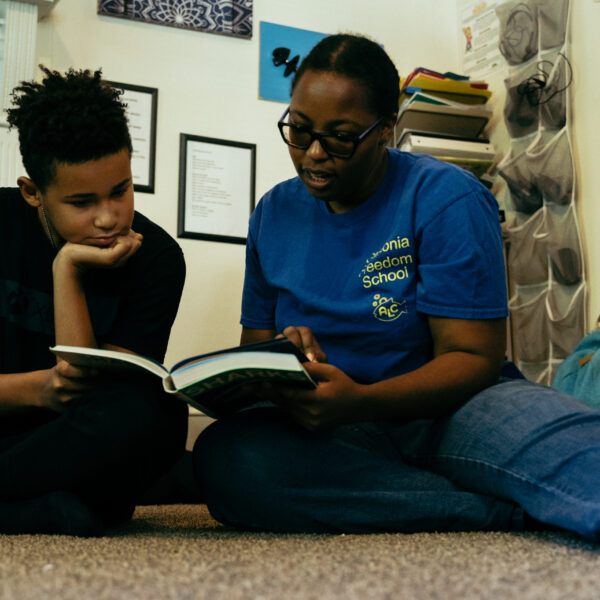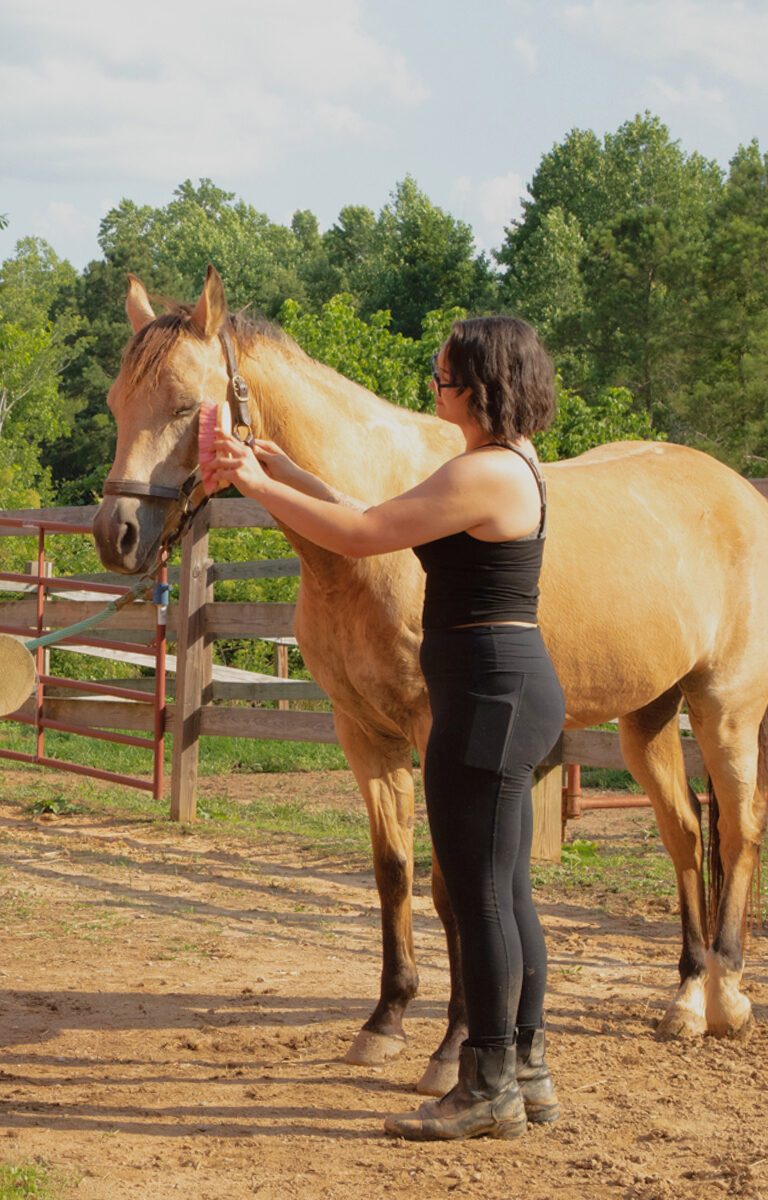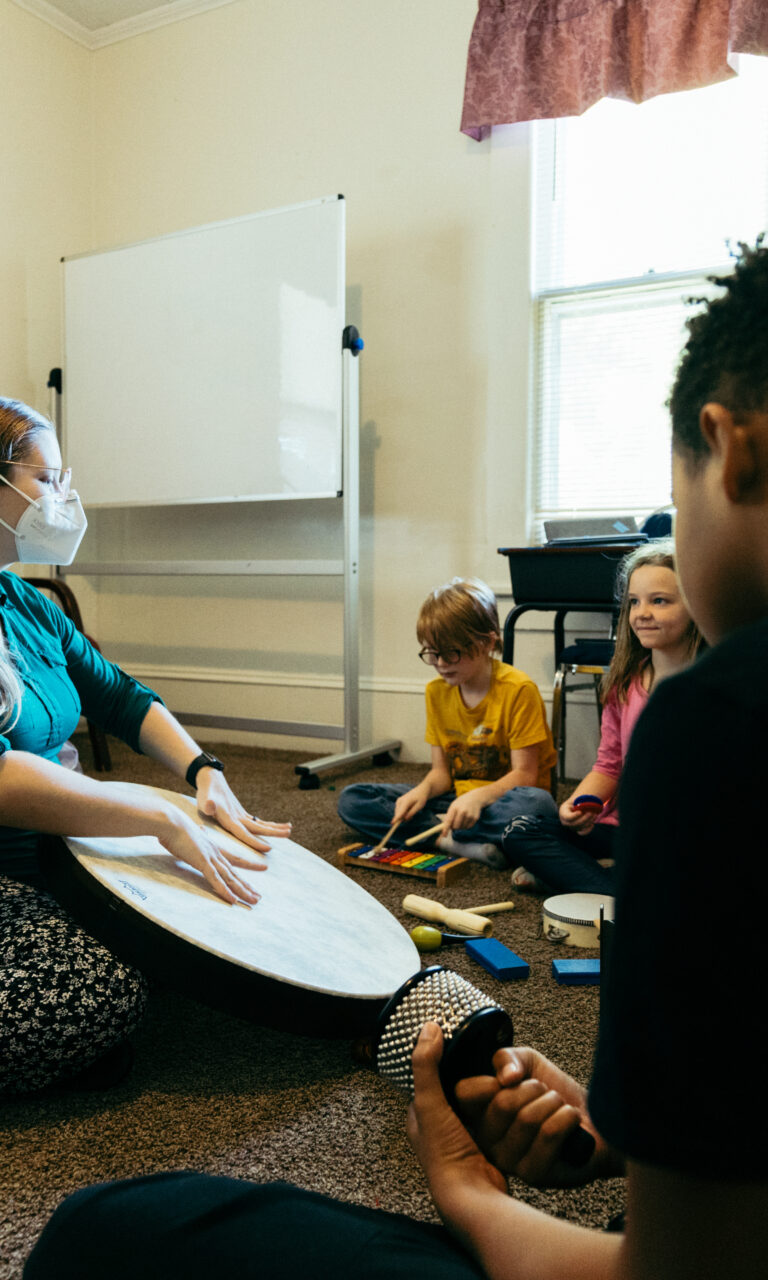Resource Author
Share
As parents plan out their homeschooling (or unschooling) journey, no matter how long you've been doing it, they think about how they will include the Core Four subjects of Math, Science, Social Studies, and Reading/Language Arts.
But why do these subjects stand out so much for us? Are we missing anything? What might we learn if we tried to nurture these subjects along with other important areas of natural development? And what might we notice about the organic ebb and flow of all areas of growth and learning for our children? Instead of focusing on the academic Core Four, I recommend a different Core Four around which parents can focus their homeschooling plans – the areas of cognitive, physical, social, and emotional development.
It is not at all surprising that new homeschool parents tend to feel compelled to focus on the traditional subjects…they receive the most emphasis in schools and have for a long time. It is these topics that have the most extensive state standards laid out for school age children and it is in these areas that children are tested over and over again throughout the typical public school experience.
Within that framework, it is important to consider all of the ways in which our children are growing and changing, so that we may nurture their progress in all aspects of living life. Let’s explore the alternative Core Four!

Recommended Reading For Your Unschooling Journey
Whether your family is seasoned practitioners or just starting out, these recommended reads will enrich your journey in independent meaningful learning. These books offer personal insights, practical advice, valuable perspectives, and research to help you navigate this self-directed educational path with confidence.
Read the ArticleCognitive
Cognitive development is about learning and includes gaining knowledge in a variety of areas like reading and writing, using math as a tool, understanding the scientific process, and studying the ways in which our society works (history, government, etc). It also includes critical thinking, creativity, and problem solving, all of which schools attempt to nurture through their core subjects, but somehow generally manage to fall short on, especially with their mile-wide, inch-deep focus. As stated above, traditional schools and “school at home” models of homeschooling place a strong focus on cognitive development, and for good reason! Creating new neural pathways by acquiring knowledge and skills is incredibly beneficial for the human brain…especially when the other aspects of human development are equally valued and attended to.
Physical
Physical development is exactly what it sounds like. It includes natural growth like getting taller and more proportionate as the human body moves through childhood, into adolescence, and eventually to adulthood. It also relates to the maturation of gross and fine motor skills. While this development happens naturally, there are still ways to nurture and encourage it. Helping our children to gain understanding into how food choices and movement impact our physical bodies is necessary for creating a healthy lifestyle in which they can thrive and be supported in all of their ventures. It is important that we allow and encourage daily movement and physical activity with our children. As they grow, an open conversation about physical development, hygiene, and health, can help remove some of the discomfort and stigma that is common among adolescents as they experience puberty.
Emotional
Emotional development is all about learning how to identify, manage, and process our feelings. This often needs ample help and support from adults who are attuned to their own emotional wellbeing. There seems to be a lot of dissonance around emotions in our current society. Currently, the human race struggles with managing and processing emotions in constructive ways. We have a history of valuing happiness and contentment over anger, sadness, and frustration. For centuries, we have tied certain emotions to different genders and created expectations around what is acceptable and what is not. This has led to a common practice of repressing emotions in order for us to make ourselves palatable to others. The awakening to this knowledge and movement towards supporting mental health has been going on for at least a couple of decades now and we are starting to see some real progress at the societal level. Supporting our children in this area is key to creating a more sustainable society for everyone
Social
Social development includes learning how to interact with our fellow humans for a variety of reasons, including the meaningful work of emotional support, play, and accomplishing tasks in collaboration with others. In past generations, there was a lot of emphasis on becoming independent. Children were encouraged to grow up and learn to support themselves financially, emotionally, and in many other ways. More recently, we are realizing that the idea of interdependence is much more realistic and natural. We can’t possibly do everything ourselves. Humans need other humans in order to thrive. We need to live in community. Social development helps us learn how to support others and how to receive the support we need. Many adults today struggle with one or both of these concepts…sometimes we don’t feel others deserve our help. Or we may have no trouble offering assistance to others, but have difficulty in accepting help ourselves. Simply allowing our children to engage in a wide range of social situations will provide them with practice and experience in how to collaborate and problem solve in community with others.
Observations
Follow the natural flow of your child’s interests and adjust accordingly
Our children’s interests will shift as they grow, meaning the skills and areas of child development we prioritize may change. Nurture their needs as they arise.
Focus on development for more fruitful learning
Shifting away from academic subjects towards prioritizing the natural development of our children creates learning opportunities that encompass all stages and parts of their growth.
All of these areas of development happen naturally over the course of a human lifetime, not just between ages 5-18. They begin at birth and continue to change and evolve until our last breath, but some may require more attention at different periods over that lifetime. For families that engage in self-directed learning (or unschooling), it is important to identify these areas so that we can nurture and support their development in ways that work for each individual child at their different ages and stages.
There will be times in your child’s life when one or two of these areas take priority over the others. It is in your child’s best interest to follow these natural rhythms and tend to these areas as they emerge. At other times, those same areas of development will take a back burner allowing those that need attention to shine through. It is absolutely acceptable (and perhaps imperative) to allow children to focus on their social and emotional development over academics during some stages…or to spend more time on activities that support physical development when your child shows the need.
Considering your child’s development from the perspective of these four different areas is one way to stay attuned to their needs and find ways to best support them as they grow and develop into the amazing humans they already are.
Have questions or feedback?
Reach out at hello@weareborntolearn.org or click the link below to join our Facebook community to talk more.


















